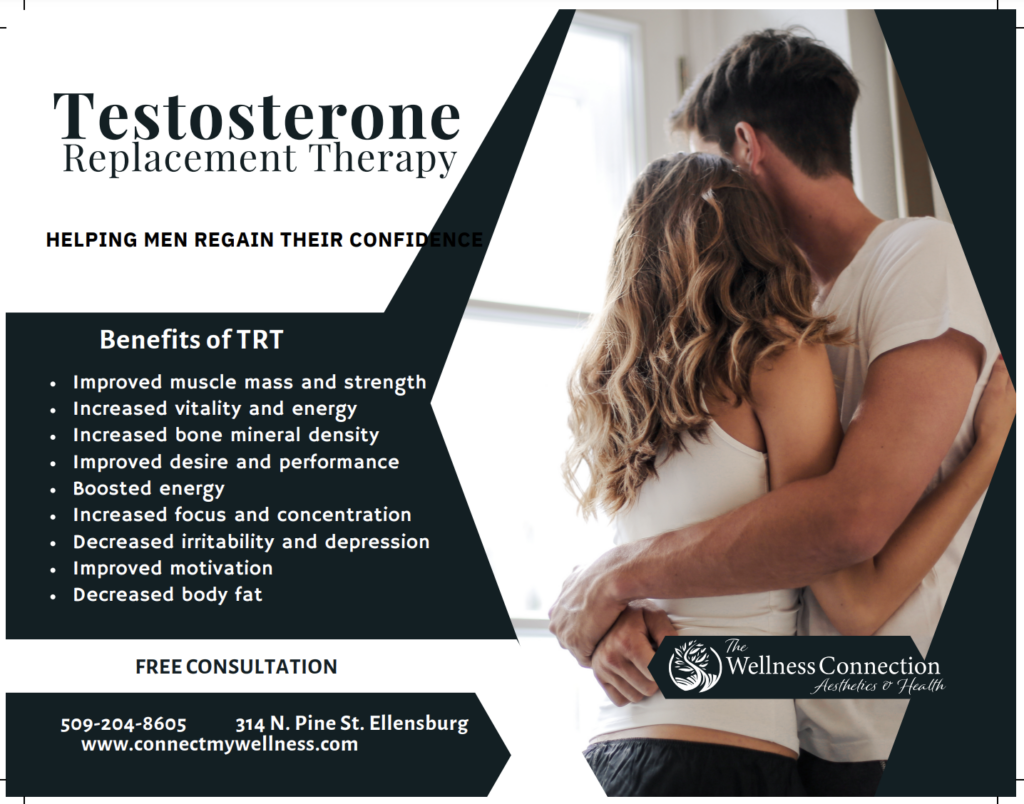Andropause is a term used to describe “male menopause” but it is different than the females counterpart. The pituitary gland sits in the brain and is responsible for secreting hormones that act on various tissues throughout the body. As a male ages, the pituitary gland gradually slows down the amount of hormones that are released. Two hormones affected by this are luteinizing hormone and follicular stimulating hormone. These hormones are act on the testicles which generate testosterone and sperm- among other things. This decline in hormone happens over many decades. Men in as early as their late twenties can start to feel a decline in sex hormone production. This decline continues throughout the man’s life. Interestingly, testosterone receptors are found in nearly every tissue of the body- you can see how a decline in this hormone can affect much more then the libido.
Comprehensive lab work will be drawn and reviewed and a treatment plan will be made. If it is found that your testosterone level is normal, there are other treatment strategies we offer for you to consider.
Initial lab work will give us a starting point and will verify if a testosterone deficiency does exist. On your first visit we will check several labs and may include; Testosterone free and total with Sex Hormone Binding Globulin (SHBG), PSA, CMP, CBC, estradiol, FSH, TSH, LH, IGF-1, Hemoglobin A1c, lipid panel, and DHEA.
Once labs are back we will formulate a treatment plan specific for you. After starting treatment we will check labs again in 1 month. Then again in 3 months, sooner if there are abnormal values. We will continue to check labs every 3 months until your lab values stabilize. Then we will likely only need to check labs once every 6 months.
Aside from the lab work, we are going to place a large emphasis on symptoms and how you feel. Often healthcare providers can fix a lab value with medication, but the patient still feels crummy. We want to fix that mentality in the medical world. During your appointment, be sure to report any symptom improvement or adverse effects you are experiencing.
If testosterone replacement therapy is indicated and you begin to receive testosterone, estrogen levels may rise naturally. Testosterone is converted into estrogen in the body- so- the more testosterone, the more of a chance of conversion to estrogen. We may need to place you on an aromatase inhibitor to slow down the conversion of testosterone into estrogen.
Getting a baseline of how your body is functioning overall is super important in understanding how best to treat you. Cholesterol is the pre-cursor for sex hormones and if this number is found to be high while the testosterone level is low it may be the bodies way of compensating for declining sex hormone production. Balancing testosterone deficit may decrease cholesterol levels. Increased cholesterol levels have been associated with increase risk of cardiovascular disease and other small vessel disease.
